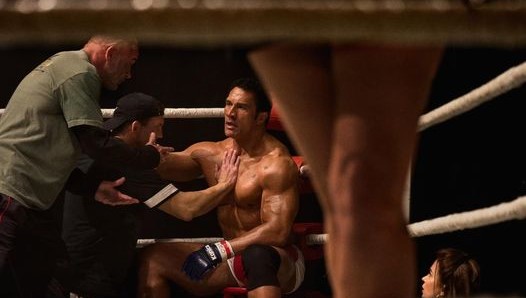
Film Critic Cameron Bowles analyses why ‘low-brow’ actors pivot to more serious roles
Actors have always tried to re-invent themselves. Whether attempting a career comeback or a change in image, those in the limelight have continually developed their public perception and celebrity in spite of personal obstacles and career setbacks. These efforts have had various degrees of success.
It could be that many actors – especially high-profile male stars – care about their mythos and personal story as a public figure
A recent example of this is Dwayne ‘The Rock’ Johnson in Benny Safdie’s upcoming The Smashing Machine – Johnson can be seen in a promotional image sporting a wig and heavy prosthetics as real-life MMA fighter Mark Kerr, a change from his conventional image. Beyond this visual transformation, the film is likely to contain more mature content, apparently dealing with “addiction, winning, love and friendship.” If Safdie’s previous films are anything to go off, the protagonist will be flawed and nuanced, often indulging in their worst vices. Uncut Gems (2019) was a critically-acclaimed comeback vehicle for Adam Sandler, who played a seedy New York jeweller and gambling addict. Sandler’s comedic chops were applied to dark humour from an anti-hero that is morally questionable yet irresistible to watch. This kind of complexity would provide a welcome change for Johnson, who may want to diversify his roles and expand his potential as an actor who is usually known for formulaic action films. Popular actors often seem eager to branch out from their usual low-brow roles. No-one in Hollywood wants to be typecast. Perhaps they’re gunning for an Oscar Nomination, or simply wish to be perceived as a “serious” actor or actress rather than being just a “movie star.”
Comebacks don’t always go to plan. Shia LaBeouf, for instance, has had various thwarted attempts to shake off his volatile image; first as a creative recovering from trauma in Honey Boy (2019), then as a Catholic convert in Padre Pio (2022), and this year Francis Ford Coppola’s Megalopolis sees him re-embracing a troublesome image with a role based upon a firebrand Roman politician. Labeouf’s shifts in career choices seem to reflect his personal evolution and changing interests in life, one that has been stunted by criminality and public controversy. This is the case for many stars; having a chequered past and a controversial background is in many ways beneficial for a redemption story.
Perhaps they’re gunning for an Oscar Nomination, or simply wish to be perceived as a “serious”
Robert Downey Jr. is commonly regarded as having the archetypal career comeback. In 1999, Downey hit rock bottom after being imprisoned on drug and firearm charges. After completing rehab and remaining sober since 2003, he gradually built his career back up and gained the role of Tony Stark in Iron Man (2008). Leading the Marvel Cinematic Universe, Downey became one of the highest-paid blockbuster stars of his time, bringing home close to $400 million for his appearances. His performance as Tony Stark in some sense mirrored the issues that marred his past; Iron Man followed the redemption of a ruthless arms manufacturer, changing his path and using his wealth for the betterment of humanity. Downey has similarly changed his public profile from that of an irresponsible criminal to an Oscar-winning icon.
Dwayne Johnson, ironically, seems to be going in the opposite direction. After already accomplishing global recognition and grossing millions, the only direction for The Rock to go is deeper. Returning to subject matter relevant to his own past and dealing with mature themes looks to be the best path for the actor in his later years, who has essentially re-invented himself before by transitioning from a wrestler to an action star. A re-branding may seem necessary for those whose careers have declined. It could be that many actors – especially high-profile male stars – care about their mythos and personal story as a public figure. Just as actors aim to embody a variety of characters and inhabit many worlds, they also strive to evolve themselves as performers, resisting typecasting and changing how movie stars are perceived.
Enjoyed reading this article? Check out these other recent features from Redbrick Film:
‘Cocaine Werewolf’ Looks to Follow ‘Cocaine Bear’ by Example at Cannes Market | Redbrick Film
Quentin Tarantino: Artistic Integrity or Calculated Constraints?
Comments